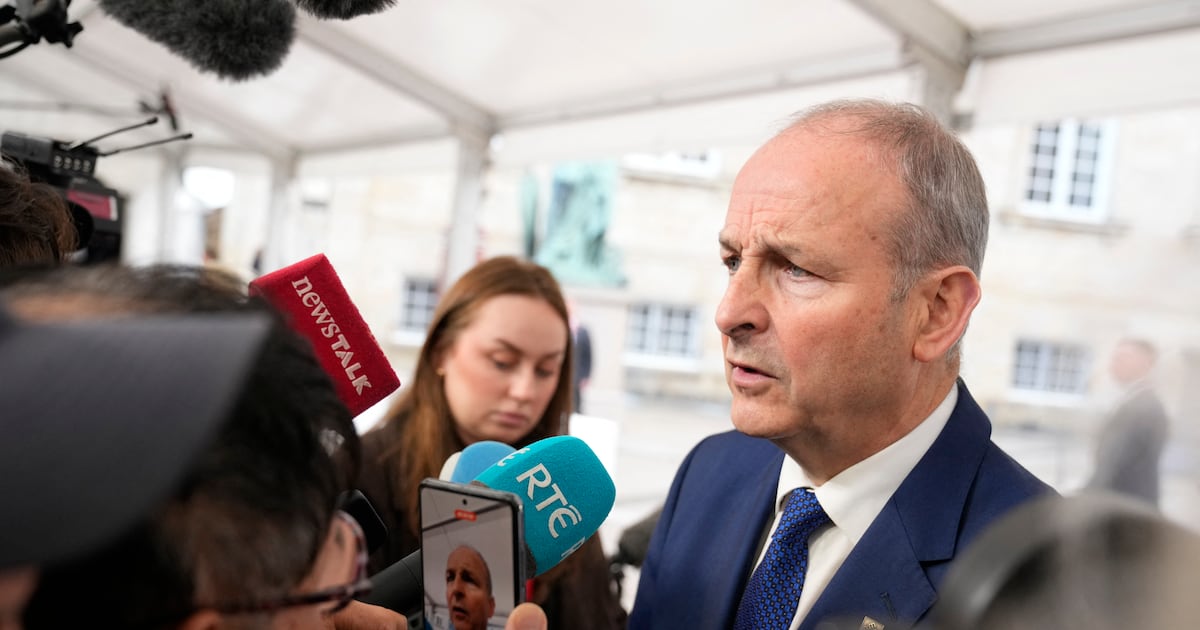The Government is planning to fast-track the acquisition of anti-drone defences at Baldonnel military airport in preparation for the visit of EU leaders to Dublin next autumn when Ireland’s holds the presidency of the EU.
However, it is expected that help will also be sought from EU countries and the UK to provide air defences because of the lack of Irish capabilities.
Anti-drone defences are part of a planned wider expansion of military capacity, which will include radar and maritime surveillance. However, it is understood that following recent Russian drone incursions into eastern European EU member states and also a series of incidents in Denmark where airports and military facilities were closed by unidentified drone activity, Irish authorities have decided to accelerate the anti-drone elements.
Though EU summits are held in Brussels at least four times a year, the country that holds the rotating, six-month EU presidency usually holds an “informal” summit in its own capital. In recent years, these have tended to be paired with meetings of the European Political Community, which includes all EU countries but also 20 other non-EU European countries such as the UK, Norway and Iceland.
EU and other European leaders gathered in Copenhagen recently for such a meeting and it is expected that the Irish Government will host a similar event in Dublin next September. Ireland holds the EU presidency for the second half of next year.
The Copenhagen meeting took place shortly after unidentified drone activity near airports and military bases – suspected to be the work of Russian agents – caused significant security worries in the Danish government, which asked for the help of other EU countries including France and Germany to provide air security for the summits.
The Danish prime minister Mette Frederiksen said that the drone activity was a so-called “hybrid attack” on her country, increasingly a concern for EU countries, especially those neighbouring Russia. These have included drone sorties into Polish and Romanian airspace, as well as Estonia reporting on September 19th that Russian fighter jets had entered its airspace for 12 minutes.
France, Germany, Sweden and the UK sent personnel and equipment to help the Danes secure the summits, including a “counter unmanned aircraft system”.
Reuters reported that Swedish police separately said they would send a significant force to Copenhagen at Denmark’s request, and that Norwegian law enforcement officers would also take part.
France sent a Fennec military helicopter, as well as a 35-strong team to handle various aspects of anti-drone work.
Before the summits Germany said it would deploy about 40 soldiers to Copenhagen at Denmark’s invitation to help with detecting, identifying and defending against drones.
Government sources in Dublin say that they are likely to look at similar options for the summits next year, though it is understood that no requests for assistance have yet been made to EU countries or the UK.
Two years ago, The Irish Times reported the existence of long-standing secret arrangement between the Irish and British governments under which the Royal Air Force (RAF) provides defence services to Ireland if required. This has in the past seen RAF jets based in Scotland scrambled to intercept Russian military aircraft in Irish-controlled airspace.
As part of last week’s budget, defence spending will jump to a record €1.49 billion next year as the Coalition moves towards a promised 50 per cent increase in military spending by 2028.
The 2026 figure represents an 11 per cent increase for the Department of Defence. The extra funding will cover the purchase of big-ticket items, such as sonar and radar systems, as well as a new uniform for the Defence Forces.
However, Ireland’s spending on defence remains a small fraction of what other EU countries typically spend.

